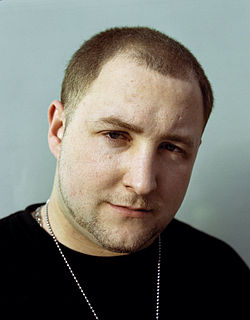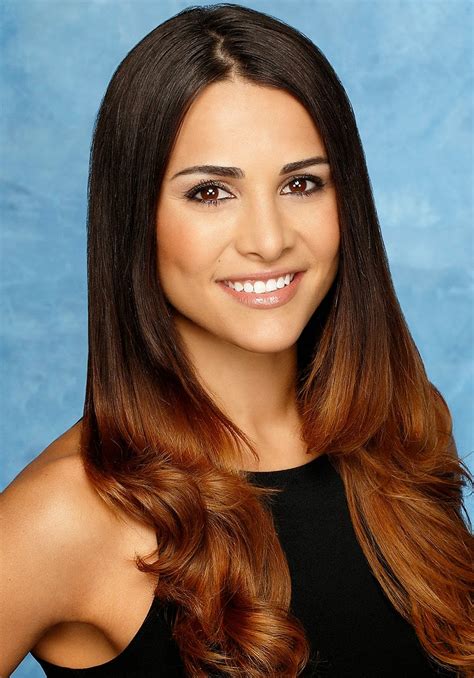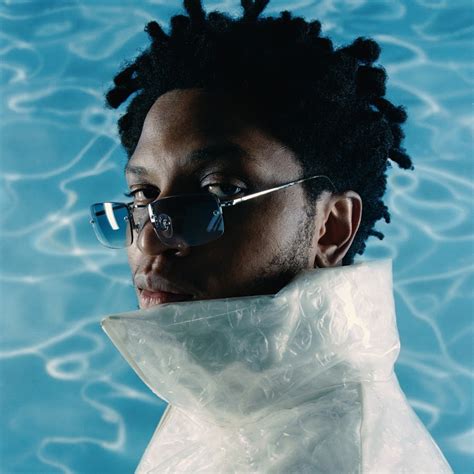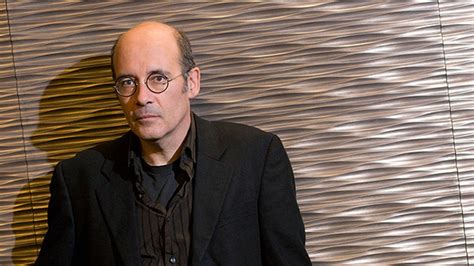A Quote by Baz Luhrmann
In 1977, hip-hop literally wasn't outside the boroughs. But I was profoundly aware of the city through films like Saturday Night Fever, The French Connection, and Network. I had a friend who visited New York, and I asked him what it was like. He said, "Oh, it's great. Just wear a coat and don't look anyone in the eye."
Related Quotes
I arrived in Tokyo in around '81. Around that time, I visited London for about two months - it was the period just before Malcolm McLaren released his solo album Duck Rock. I'd met him when he came to Japan, so I visited him in London and spent one evening with him and his girlfriend over at his house. He told me, "London is boring right now. You should go to New York." So he called a friend in New York, who I think was an old assistant or someone who helped him record early hip-hop stuff over there.
One time, I threw a candy wrapper on the street. I was with a friend who said to me, You just littered on the street! Don't you care about the environment? And I thought about it, and I said, You know what? This isn't the environment. This is New York City. New York City is not the environment. New York City is a giant piece of litter. Next to Mexico City, it's the shittiest piece of litter in the world. Just a pussy, runny, smokin', stinkin' piece of litter.
Socially, hip-hop has done more for racial camaraderie in this country than any one thing. 'Cause guys like me, my kids - everyone under 45 either grew up loving hip-hop or hating hip-hop, but everyone under 45 grew up very aware of hip-hop. So when you're a white kid and you're listening to this music and you're being exposed to it every day on MTV, black people become less frightening. This is just a reality. What hip-hop has done bringing people together is enormous.
I think the best actors in the world are here in New York City. And this city is just so vibrant the energy is just phenomenal. Great crews here. All the technicians, all the artists that work in this industry. I've just been very happy with the body that we've been able to do, especially those films we shot here in New York City.
When I talked to him earlier, he said he had to work tonight,” Peter explained, “but that we should go ahead and draw for him.” “Draw?” I asked uneasily. “Oh Lord. Tell me it’s not Pictionary night too.” Peter sighed wearily. “Draw for secret Santas. Do you even read the e-mails I send?” “Secret Santas? Seems like we just did that,” I said. “Yeah, a year ago,” said Peter. “Just like we do very Christmas.
I could turn around as Wyatt Walker said to me about, not you personally, but about the whole Black Muslim movement. That if you go outside of New York City, Dr. [Martin Luther] King is known to 90 percent of the Negroes in the United States and is respected and, and is identified more or less with him, at least as a hero of one kind or another. That the Black Muslim, outside of one or two communities like New York, are unknown.
I wasn't born in New York and I may never live there again, and just thinking about it makes me melancholy, but I was changed forever by it, my imagination is manacled to it, and I wear its mark the way you wear a scar. Whatever happens, whether I like it or not, New York City is fated always to remain my home.




































